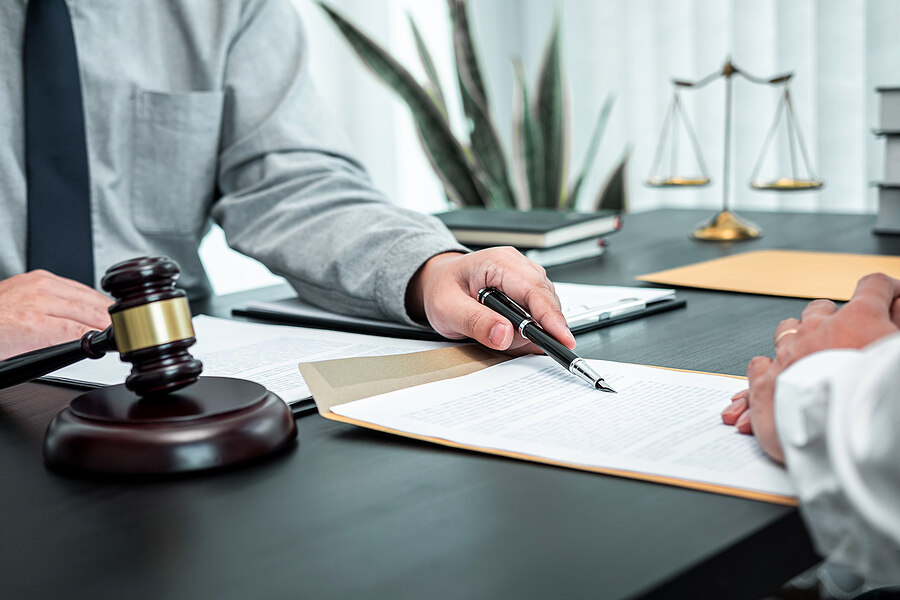Table of Contents
When navigating the uncertain terrain of the legal system, particularly when contending with criminal charges, the importance of a stout legal defense cannot be downplayed. As a bulwark, effective legal defense is essential in safeguarding individual rights and ensuring that justice is dispensed fairly.
Grasping the intricacies of the legal system is paramount for anyone entwined with it, whether as a defendant or a conscientious citizen. A profound understanding of legal proceedings and embedded rights, such as the right to a fair trial, is critical to appreciating how the judiciary operates to protect individual freedoms and uphold the principle of justice.
Understanding the Legal System
The tower of the criminal justice system has been meticulously constructed to adjudicate conflicts with equity and precision. At its core, it is rooted in the ethos of ensuring justice and fairness, enabling each individual to access the law’s mechanisms for resolving disputes. Several key actors play distinct and pivotal roles within this system: judges steer the procedural helm, ensuring fairness and adherence to the law; prosecutors act as the state’s advocates, aiming to prove the allegations beyond a reasonable doubt; and personal injury attorneys provide the bedrock of the accused’s legal argument. This triad of roles operates within a complex scaffold of legislation and jurisprudence, crafted to balance law enforcement with robust protections for individual rights.
The Right to a Fair Trial
In many democracies, the right to a fair trial is not merely a legalistic concept but a foundational pillar supporting justice architecture. It encapsulates the hallowed principle that all persons accused of wrongdoing are presumed innocent until proven otherwise by a competent court. A suite of ancillary rights fortifies this doctrine: the ability to confront and question one’s accusers, access to a competent and impartial defense, and the privilege of remaining silent to avoid self-incrimination. No matter the nature of the allegations, the right to a fair trial is the bedrock upon which the legitimacy of judicial outcomes rests.
Common Misconceptions About Criminal Defense
Certain myths surrounding criminal defense persistently cloud public perception. One prevalent misconception suggests that defense attorneys are sympathizers of criminality. Yet, their mandate is to ensure the legal process’s integrity by providing comprehensive defense to all clients, irrespective of their alleged crimes. This role is integral to preserving the justice system’s fairness and reinforcing the universal application of rights, a principle fundamental to the rule of law.
How Legal Representation Can Make a Difference
Eminent legal representation has a transformative impact on judicial outcomes. Attorneys are adept at deciphering the labyrinth of legal statutes and the procedural nuances that present themselves in judicial proceedings. Their expertise proves invaluable in assessing evidence, formulating cogent defense arguments, and offering guidance on the legal implications of various courses of action. Their commitment and legal acumen can swing the balance from a possible conviction to an acquittal or favorable settlement.
The Step-by-Step Process of a Criminal Defense Case
The odyssey of a criminal defense case unfolds through several stages, beginning with an arrest and potentially culminating in a verdict or appeal. Each phase—arraignment, discovery, pre-trial motions, and the trial itself—demands acute vigilance and strategic insight from defense attorneys. Every step is fraught with potential pitfalls and procedural snares that can unduly prejudice the accused’s cause, requiring counsel to meticulously safeguard the rights of their clients and ensure their entitlements are unfettered at each turn.
Key Considerations When Choosing a Defense Attorney
The choice of defense attorney is pivotal and can profoundly influence a case’s direction and outcome. Prospective clients are advised to consider factors such as an attorney’s experience with similar cases, their professional standing among peers, and the potential to build a trusting and communicative attorney-client relationship. This last quality is particularly crucial, as mutual trust and open communication channels are often the lifeblood of an effective defense.
Challenging Evidence and Arguments in Court
A central element of an attorney’s role is to rigorously challenge the prosecution’s case, questioning the integrity of evidence and the reliability of witness testimonies. Through techniques such as systematic cross-examination, defense attorneys strive to expose weaknesses or biases in witnesses’ accounts and advocate for excluding evidence that may have been obtained in contravention of a defendant’s rights.
The Impact of Legal Defense on Future Opportunities
The caliber of legal defense an individual receives resonates beyond the courtroom, shaping future opportunities and life trajectories. Criminal convictions can stigmatize defendants, circumscribing their employment prospects, housing options, and social relationships. On the other hand, a robust defense leading to an acquittal or favorable plea agreement can minimize these detrimental effects, safeguarding the defendant’s future aspirations.
For More Information Please Visit These Websites Viprow And Vecteezy

